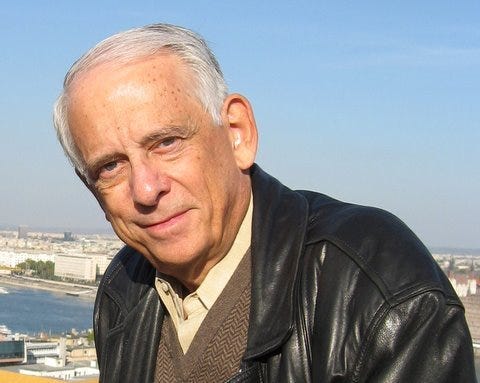Perhaps President Trump should have just said the US Air Force attack he authorized on the Iranian nuclear enrichment facilities was a spectacular success and eschewed any reference to obliteration. The bottom line is that he played the American hand quite well.
The US Air Force did thread the proverbial needle, delivering 30,000-pound bunker-buster bombs and an array of Tomahawk missiles right down the ventilation shafts of the Iranian bomb-making facilities deep in the bowels of the mountains in which the Iranian nuclear enterprise was operating.
Whether we clobbered, walloped, obliterated, or just seriously impeded the Iranian nuclear effort isn’t the issue. The point is that Israel and the United States knocked Iran’s aircraft out of commission and destroyed Iran’s nuclear enterprise. Now Iran understands how costly tangling with American and Israeli military capability will be. President Trump authorized the right strike at the right time, as did the Israeli Defense Forces. Well done, President Trump and Prime Minister Netanyahu.
The hyperbolic choice of words following the bomb run was unnecessary, and the partisan rhetoric over whether we severely damaged or obliterated Iran’s nuclear program is a bit demeaning of the spectacular success of the mission.
The Iran-Israel Conflict
Iran, by population, is nearly ten times the size of Israel. And for years, Iran has regularly broadcast, with complete abandon, its determination to annihilate the Jewish nation. This Iranian commitment to wipe Israel from the face of the earth is a manifestation of the religious fanaticism of Iranian theocrats. Generally, nations go to war to acquire something one nation wants that another nation possesses. Wars have been fought to acquire warm-water ports or another nation’s resources. Think of the wars fought over water, oil, coca, diamonds, gold, lithium, poppy, and timber.
Iran’s motive for war is ominously different. Israel is bereft of natural resources. The tiny nation is, however, extraordinarily rich in both brain power and an unassailable determination to survive. Iran, or more aptly stated, Iran’s mullahs, have evidenced an unwavering determination to annihilate Israel.
It isn’t going to happen. Israel understands annihilation. Most of its population consists of survivors or children and grandchildren of survivors of the attempted Nazi annihilation of Europe's Jewish population. Every young man and woman who serves in the Israeli Defense Forces, and with few exceptions, they all serve and are all schooled in the history of those attempted annihilations.
Israel has fought in a series of conventional wars in which the tiny nation has been threatened. While Israel is, today, widely believed to be a nuclear nation possessing a significant nuclear arsenal, it has defended itself using conventional weapons mostly procured from the United States. During Israel’s War of Independence, it fought using weapons it scrounged up wherever it could find them, including old surplus rifles procured from Czechoslovakia.
Before the 1979 Iranian Revolution, which brought a fanatically anti-Israel theocratic regime to power in Iran, Israel and Iran had close personal as well as diplomatic relations. Iran was one of the first Muslim-majority countries to recognize Israel. That all changed following the 1979 revolution, and Iran has been in the hands of a fanatical theocracy ever since. Iran, today, advocates ad nauseam for the Jewish state's destruction.
Israel, therefore, understandably considers Iran's possession of nuclear weapons to be an existential threat. As the world witnessed this month, Israel will take steps to keep a nuclear-armed Iran from ever coming into existence. Iran also supports an array of proxies that are dedicated to the destruction of Israel. Think Hezbollah, Hamas, and the Houthis.
During the past 19 years, Hezbollah, with Iranian support, has repeatedly fought with Israel. Fifteen years ago, the United States and Israel disrupted the Iranian nuclear program with Stuxnet, a cyber weapon believed to have been jointly developed by Israel and the United States.
The last five years have been particularly volatile. There have been a series of alleged Israeli-led assassinations targeting Iranian nuclear scientists and military officials. Two years ago, Hamas launched an attack on Israel, which triggered the Gaza War and led to increased tensions involving Iranian proxies. In the past year, there have been direct Iranian missile strikes from Iran directed at Israel, as well as targeted assassinations of Iranian nuclear scientists, as both sides escalate the conflict.
This year, we have witnessed Israel’s attacks on Iran's war-making facilities, which have led to a brief aircraft and missile war culminating with the current fragile ceasefire.
It is too early to tell where all of this will lead. The region could experience a continuation of direct attacks and irregular warfare, as well as ongoing American and Israeli attempts to stop any further Iranian nuclear positioning. The situation remains volatile. There is grave concern about the potential for further escalation and its broader implications for regional stability.
Quite possibly, threats from Iran will recede, at least for the foreseeable future, given the considerable commitment President Trump has invested in his ability to deter Iranian mischief. He has played the American hand cautiously, but effectively. Iran’s mission to project power and demonstrate muscularity in the region has been severely compromised by Israeli and American resolve.
Please share our weekly commentary with others.
Of Thee I Sing 1776. Subscribe here:
https://oftheeising1776.substack.com/subscribe
Recent podcasts have featured my commentary on Liz Cheney’Cheney's “Oath of Honor,” as well as my commentaries regarding:
US Representative Jim Jordan,
Brian Kemp and Those Republicans of Georgia,
The Trump Indictments,
The Fox Corp Settlement,
The CNN Trump Town Hall,
The Hunter Biden plea deal,
The New American Cult of Personality,
and my interviews with William Bratton, Retired Chief of Police in New York City, Los Angeles, and Boston;
Rikki Klieman, Attorney, Network News Analyst, and best-selling author;
John Thoresen, Executive Director, Barbara Sinatra Children's Center;
Katherine Gehl, co-author of The Politics Industry and founder of the Institute for Political Innovation;
Jazz artist Ann Hampton Callaway;
Outlander author Diana Gabaldon;
AI Data Scientist Lawrence Kite;
Ryan Clancy, Chief Strategist of No Labels;
Former Senator Barbara Boxer;
Former Senator Joe Lieberman;
and former Maryland Governor Larry Hogan.
Novels by Hal Gershowitz





Thanks Hal - a straightforward review of the most recent Middle East actions by the US and Israel - and hope for change in Iran and its proxies. Yes, the hyperbole that President Trump used was unnecessary but unfortunately seems to be part of his package. There are many things to criticize among the accomplishments of the present administration, but this was not one.
Well said Hal
Wether the US destroyed 90% or 70% or whatever shouldn’t be the word that should be debated, what’s important is that US and Israel had a Hugh success that not only the US and Israel but the world should be celebrating
My 2 cents!!!!!